10 AI Applications That Will Transform Healthcare
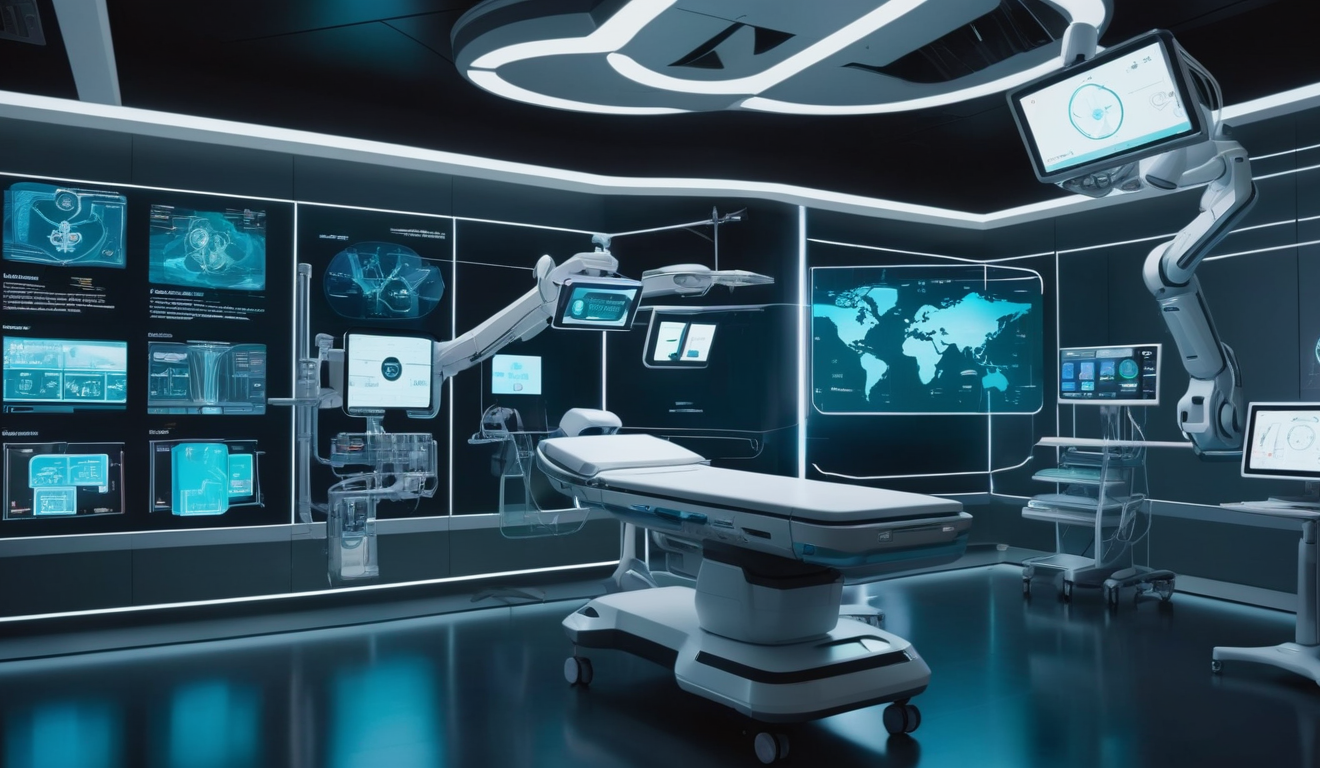
The healthcare industry is on the brink of a major revolution, thanks to artificial intelligence (AI). Imagine walking into a hospital where your medical history is analyzed in seconds, or where a virtual assistant can answer your health queries at any time of the day. This isn’t science fiction; it’s happening now! In this article, we will explore ten innovative applications of AI that are set to enhance patient care, streamline operations, and completely transform the medical field.
Predictive analytics leverages AI algorithms to sift through mountains of patient data. By identifying patterns and trends, healthcare providers can foresee potential health issues before they escalate. This proactive approach not only enhances patient care but also significantly reduces hospital readmissions. For example, hospitals using predictive analytics have seen a 20% reduction in readmission rates. Isn’t it amazing how data can save lives?
Imagine a world where diseases are diagnosed earlier and with greater accuracy. AI technologies are revolutionizing diagnostics by analyzing medical images and data with remarkable precision. This allows healthcare professionals to identify diseases sooner, leading to improved treatment plans. According to a recent study, AI-powered diagnostic tools can achieve a diagnostic accuracy rate of over 90%. That’s a game-changer!
Virtual health assistants, powered by AI, are like having a personal health coach at your fingertips. They provide personalized support by answering medical queries and managing appointments. This not only enhances patient engagement but also streamlines healthcare processes. For instance, patients using virtual assistants report a 30% increase in satisfaction with their healthcare experience.
The drug discovery process has traditionally been long and costly. However, AI is changing the game by analyzing vast datasets to predict how different compounds will behave. This accelerates the identification of promising candidates for further investigation, ultimately reducing the time and costs associated with bringing new drugs to market. In fact, AI has the potential to cut drug development time by 50%!
Personalized medicine is all about tailoring treatments to individual patients, and AI is at the forefront of this movement. By analyzing genetic information and patient history, healthcare providers can create customized treatment plans that lead to more effective therapies and better outcomes. This approach has already shown promise in fields like oncology, where treatments are tailored to the genetic makeup of tumors.
With the rise of wearable technology, AI is enhancing remote patient monitoring and telemedicine. By analyzing real-time data from devices, healthcare providers can keep tabs on patients’ health conditions and intervene when necessary. This not only improves patient outcomes but also allows for greater flexibility in healthcare delivery.
Administrative tasks in healthcare can be a burden, but AI is here to help. By automating scheduling, billing, and other administrative duties, healthcare professionals can focus more on what they do best: caring for patients. This not only improves operational efficiency but also reduces the chances of human error.
AI-driven clinical decision support systems provide healthcare professionals with evidence-based recommendations, improving the accuracy of diagnoses and treatment plans. This technology helps reduce the likelihood of errors, ensuring that patients receive the best possible care.
AI applications in mental health are proving to be invaluable. With chatbots and virtual therapy options, patients can receive immediate support and resources, alleviating some of the burdens on mental health professionals. This is particularly crucial in today’s fast-paced world, where mental health issues are on the rise.
Finally, AI tools facilitate population health management by analyzing trends and patterns within large datasets. This enables healthcare organizations to implement targeted interventions that improve the health of communities. By understanding the health needs of a population, providers can make informed decisions that lead to better health outcomes.
| Application | Benefits |
|---|---|
| Predictive Analytics | Reduces readmission rates |
| AI Diagnostics | Increases diagnostic accuracy |
| Virtual Health Assistants | Enhances patient engagement |
| Drug Discovery | Reduces time and cost |
| Personalized Medicine | Improves treatment efficacy |
As we can see, the potential of AI in healthcare is immense. The applications discussed here are just the tip of the iceberg. As technology continues to evolve, we can expect even more innovative solutions that will enhance patient care and improve the overall healthcare system.
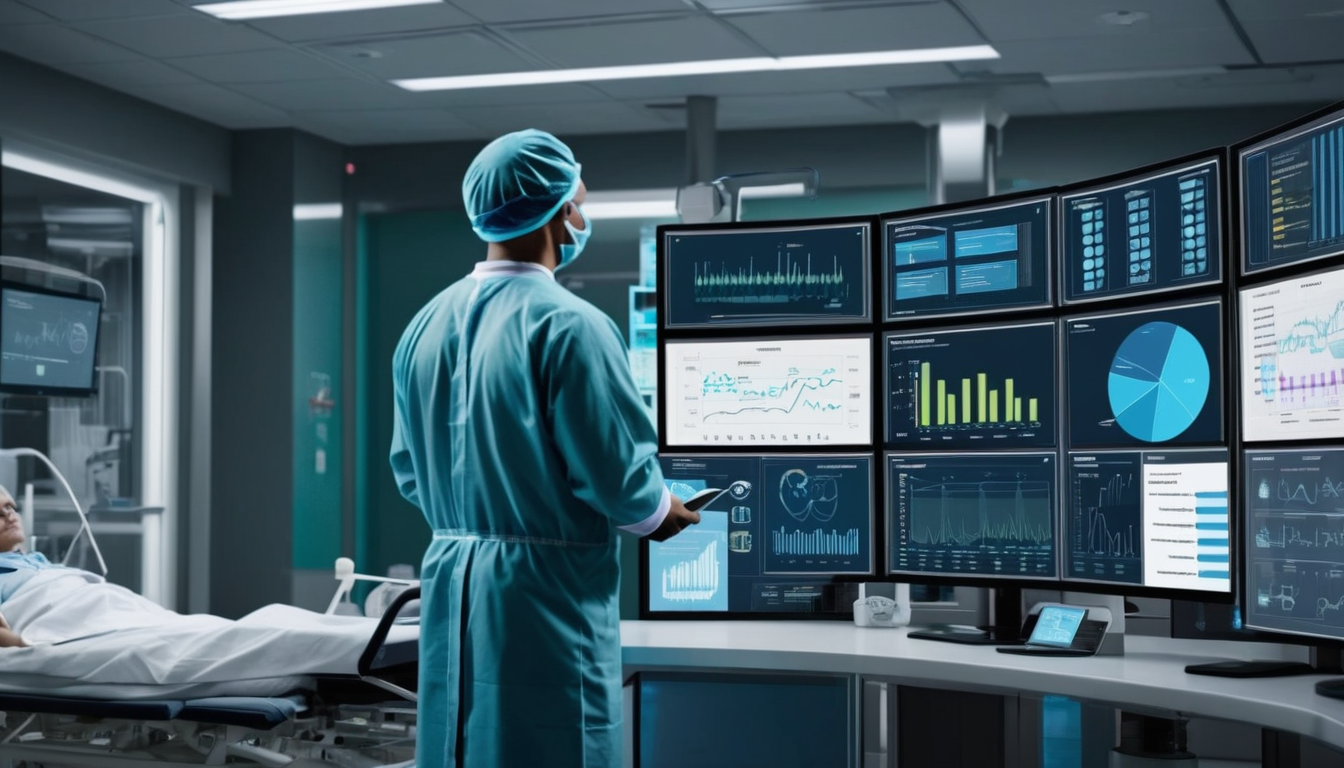
1. Predictive Analytics in Patient Care
Predictive analytics is revolutionizing the way healthcare providers approach patient care. By leveraging advanced AI algorithms, healthcare professionals can analyze vast amounts of patient data, which includes everything from medical histories to lifestyle choices. This capability enables them to foresee potential health issues before they escalate, allowing for timely interventions. Imagine it like having a crystal ball that not only predicts future health problems but also suggests the best course of action to prevent them.
For instance, predictive analytics can identify patients at high risk of developing chronic diseases such as diabetes or heart disease. By analyzing patterns in their health data, providers can implement preventive measures tailored to individual needs. This proactive approach not only enhances patient care but also significantly reduces the likelihood of hospital readmissions.
| Potential Health Issues | Preventive Measures |
|---|---|
| Diabetes | Dietary changes, regular monitoring |
| Heart Disease | Exercise programs, medication adjustments |
| Chronic Respiratory Conditions | Smoking cessation, pulmonary rehabilitation |
Moreover, the integration of predictive analytics into patient care leads to a more personalized healthcare experience. By utilizing algorithms that take into account various factors, healthcare providers can create tailored treatment plans that resonate with individual patients. This not only improves patient outcomes but also fosters a deeper connection between patients and their healthcare teams.
To illustrate the impact of predictive analytics, consider the following key benefits:
- Early Detection: Identifying health issues before they become severe.
- Cost Efficiency: Reducing unnecessary hospital visits and treatments.
- Improved Patient Engagement: Empowering patients to take charge of their health through informed decisions.
As we continue to embrace technology in healthcare, the importance of predictive analytics cannot be overstated. It stands at the forefront of a shift towards more proactive and personalized patient care. In the words of Dr. John Halamka, a notable figure in health IT, “The future of healthcare is not just about treating illnesses; it’s about predicting and preventing them.” This quote encapsulates the essence of what predictive analytics aims to achieve in the realm of patient care.
In conclusion, predictive analytics is not merely a trend but a fundamental shift in how healthcare is delivered. By harnessing the power of AI, healthcare providers can anticipate and address health issues more effectively, ultimately transforming the patient experience for the better.

2. AI-Powered Diagnostics
In the rapidly evolving landscape of healthcare, AI-powered diagnostics are emerging as a game changer. Imagine having a healthcare assistant that can sift through mountains of medical data with the speed and accuracy of a seasoned professional. This is the promise of AI in diagnostics, where algorithms analyze medical images and patient data to identify conditions earlier than ever before. By leveraging machine learning and deep learning techniques, these systems can recognize patterns that might elude even the most experienced clinicians.
One of the most remarkable aspects of AI-powered diagnostics is its ability to enhance early detection of diseases. For instance, AI can analyze radiology images, such as X-rays and MRIs, with astonishing precision. This capability not only expedites the diagnostic process but also significantly improves patient outcomes by facilitating timely interventions. For example, a study revealed that AI algorithms could detect certain cancers up to 20% more accurately than human radiologists.
To illustrate the impact of AI in diagnostics, let’s consider a comparison between traditional diagnostic methods and AI-enhanced approaches:
| Aspect | Traditional Diagnostics | AI-Powered Diagnostics |
|---|---|---|
| Speed | Time-consuming, often requiring multiple consultations | Rapid analysis, often providing results within minutes |
| Accuracy | Subject to human error and bias | High accuracy through data analysis and pattern recognition |
| Cost | Can be expensive due to multiple tests and follow-ups | Potentially lower costs with fewer unnecessary tests |
As AI continues to advance, its applications in diagnostics are expanding. Here are some key areas where AI is making significant strides:
- Image Analysis: AI algorithms can detect anomalies in imaging studies, such as tumors or fractures, more quickly and accurately than traditional methods.
- Pathology: AI can assist pathologists in analyzing biopsy samples, ensuring no critical details are overlooked.
- Genomic Data Interpretation: AI helps in interpreting complex genetic data, paving the way for targeted treatments.
However, while the benefits of AI-powered diagnostics are substantial, it is essential to address some challenges. Concerns about data privacy and the potential for algorithm bias must be taken seriously. As we integrate AI into healthcare, ensuring that these systems operate with transparency and fairness will be crucial to maintaining patient trust.
In conclusion, AI-powered diagnostics hold tremendous potential to revolutionize how we approach disease detection and treatment. By embracing these technologies, healthcare providers can not only improve patient outcomes but also streamline their operations, making healthcare more efficient and accessible for everyone.
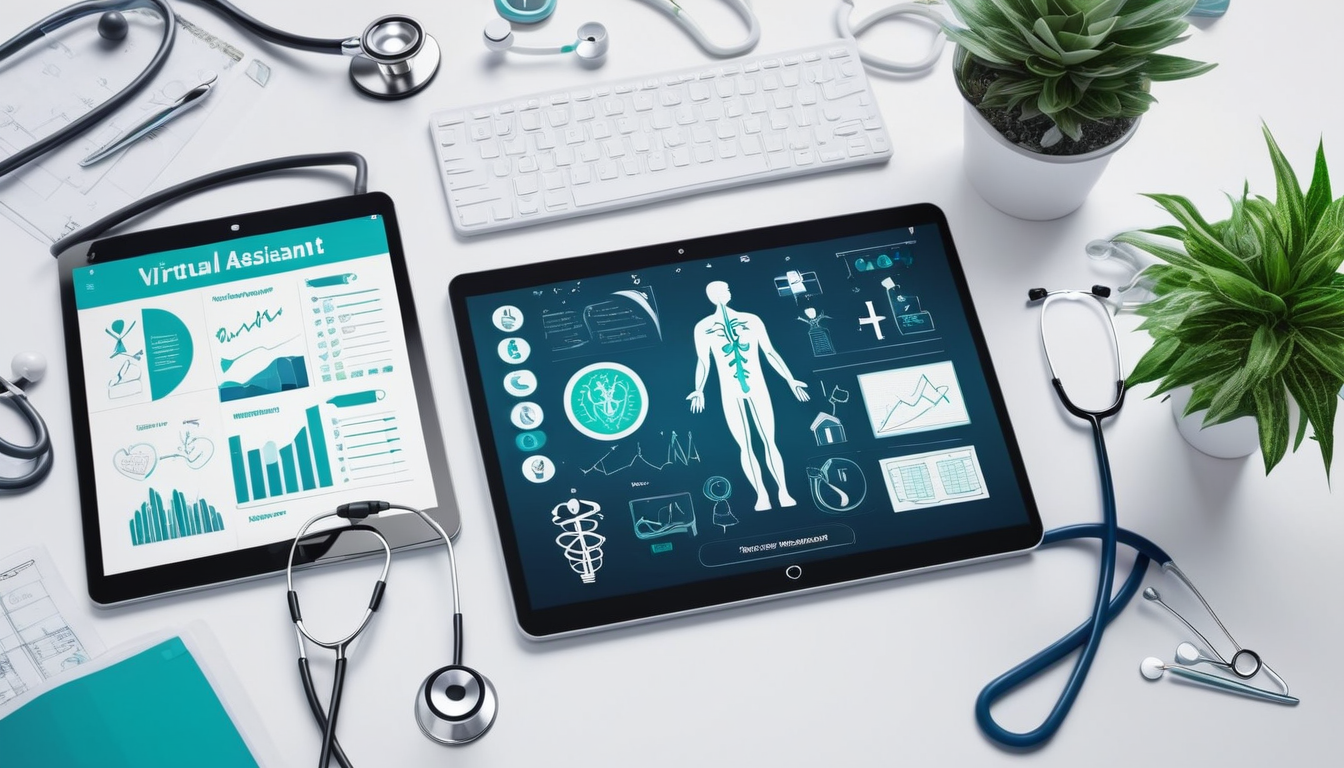
3. Virtual Health Assistants
In today’s fast-paced world, Virtual Health Assistants powered by artificial intelligence are revolutionizing the way patients interact with healthcare systems. Imagine having a personal assistant available 24/7, ready to answer your medical queries, manage your appointments, and provide tailored health advice. This is not science fiction; it’s a reality that is transforming patient engagement and streamlining healthcare processes.
These AI-driven assistants utilize advanced algorithms to understand and respond to patient inquiries, making healthcare information more accessible and personalized. For instance, they can remind patients to take their medications, schedule follow-up appointments, and even provide information about symptoms. This level of engagement not only enhances patient satisfaction but also ensures that individuals stay on track with their health goals.
The benefits of Virtual Health Assistants extend beyond mere convenience. They play a crucial role in improving healthcare efficiency by:
- Reducing the workload on healthcare professionals
- Minimizing wait times for patients seeking information
- Providing immediate responses to common health concerns
According to a recent study, patients using virtual health assistants reported a 30% increase in their overall satisfaction with healthcare services. This statistic underscores the potential of AI in enhancing the patient experience. Furthermore, as these technologies continue to evolve, we can expect even more sophisticated interactions that could include voice recognition and natural language processing, making communication feel more human-like.
To illustrate the impact of Virtual Health Assistants, consider the following table that outlines their key features and benefits:
| Feature | Benefit |
|---|---|
| 24/7 Availability | Patients can get assistance anytime, reducing anxiety and uncertainty. |
| Personalized Health Information | Tailored responses based on patient history and preferences. |
| Appointment Management | Streamlined scheduling reduces no-shows and improves clinic efficiency. |
| Medication Reminders | Helps patients adhere to their treatment plans, leading to better health outcomes. |
As we look to the future, the integration of Virtual Health Assistants in healthcare systems seems inevitable. They offer a scalable solution to some of the most pressing challenges in patient care. However, it is essential to maintain a balance between technology and the human touch. While AI can handle routine tasks and provide information, the empathy and understanding of healthcare professionals remain irreplaceable.
In conclusion, Virtual Health Assistants are not just a trend; they represent a significant shift in how we approach healthcare. By leveraging AI to enhance patient engagement, we can create a more efficient, responsive, and patient-centered healthcare system. Are you ready to embrace this change?

4. Drug Discovery and Development
The realm of drug discovery and development is undergoing a seismic shift thanks to the integration of artificial intelligence (AI). Traditionally, this process has been time-consuming and costly, often taking over a decade to bring a new drug to market. However, AI is revolutionizing this landscape by streamlining various stages of drug development, from initial research to clinical trials. Imagine having a super-smart assistant that can sift through millions of data points in seconds—this is precisely what AI does in the pharmaceutical industry.
One of the most significant advantages of AI in drug development is its ability to analyze vast datasets. By leveraging machine learning algorithms, researchers can predict how different compounds will behave in the human body. This predictive power not only speeds up the identification of promising candidates but also reduces the likelihood of late-stage failures that can derail projects and waste resources. In fact, a recent study revealed that AI could cut the time for drug discovery by up to 50%!
Moreover, AI can enhance the precision of drug design. By utilizing genomic data and chemical libraries, AI systems can identify potential drug targets and optimize molecular structures. This means that instead of randomly testing compounds, scientists can focus their efforts on the most promising candidates. For example, AI algorithms can predict the binding affinity of a drug to its target, allowing researchers to prioritize compounds that are more likely to succeed in clinical trials.
| Stage of Drug Development | AI Contribution |
|---|---|
| Target Identification | AI analyzes biological data to identify potential drug targets. |
| Lead Discovery | AI predicts which compounds will be effective against the target. |
| Preclinical Testing | AI models simulate how drugs will behave in the human body. |
| Clinical Trials | AI optimizes trial designs and patient selection. |
Additionally, AI can significantly improve the efficiency of clinical trials. By analyzing patient data, AI can help identify suitable candidates for trials, ensuring that the right individuals receive the treatment. This not only accelerates the trial process but also enhances the quality of data collected, leading to more reliable outcomes. Imagine trying to find a needle in a haystack; AI is like a magnet that pulls the right candidates to the forefront.
In summary, the integration of AI in drug discovery and development is not just a trend—it’s a transformative force that is reshaping the pharmaceutical landscape. With its ability to analyze data, predict outcomes, and streamline processes, AI is paving the way for faster, more efficient, and cost-effective drug development. As we continue to explore the potential of AI, the future of medicine looks incredibly promising.

5. Personalized Medicine
Personalized medicine is revolutionizing the way healthcare providers approach treatment plans by tailoring therapies to individual patients. This innovative approach leverages the power of artificial intelligence to analyze a patient’s unique genetic makeup, lifestyle, and medical history. Imagine being able to receive a treatment plan that is specifically designed for you, rather than a one-size-fits-all solution. This is the future of healthcare, and it’s here now!
With the integration of AI technologies, healthcare professionals can sift through vast amounts of data to identify patterns and correlations that would be impossible to discern manually. For instance, AI can predict how a patient will respond to a specific medication based on their genetic profile, leading to more effective and targeted therapies. This not only improves patient outcomes but also minimizes the risk of adverse reactions to medications.
| Aspect | Traditional Medicine | Personalized Medicine |
|---|---|---|
| Treatment Approach | Standardized treatments for all | Tailored treatments based on individual profiles |
| Data Utilization | Limited patient data | Extensive genetic and lifestyle data |
| Outcome Prediction | General predictions | Specific predictions based on AI analysis |
Furthermore, the use of personalized medicine has the potential to transform the treatment of chronic diseases such as cancer, diabetes, and heart disease. By analyzing genetic variations, healthcare providers can determine which treatments are most likely to succeed for each patient. This leads to a significant reduction in trial-and-error approaches, saving both time and resources.
As we delve deeper into the era of personalized medicine, it’s essential to consider the ethical implications. Questions surrounding data privacy and the security of genetic information come to the forefront. Ensuring that patients’ data is protected while still allowing for innovative treatments is crucial. As Dr. Jane Smith, a leading researcher in this field, states, “We must tread carefully and ensure that personalized medicine benefits everyone without compromising individual privacy.“
In conclusion, personalized medicine represents a significant leap forward in healthcare. By harnessing the power of AI to create tailored treatment plans, we are not just treating diseases; we are enhancing the quality of life for patients. The future is bright, and with continued advancements, we can look forward to a healthcare system that truly puts the patient first.
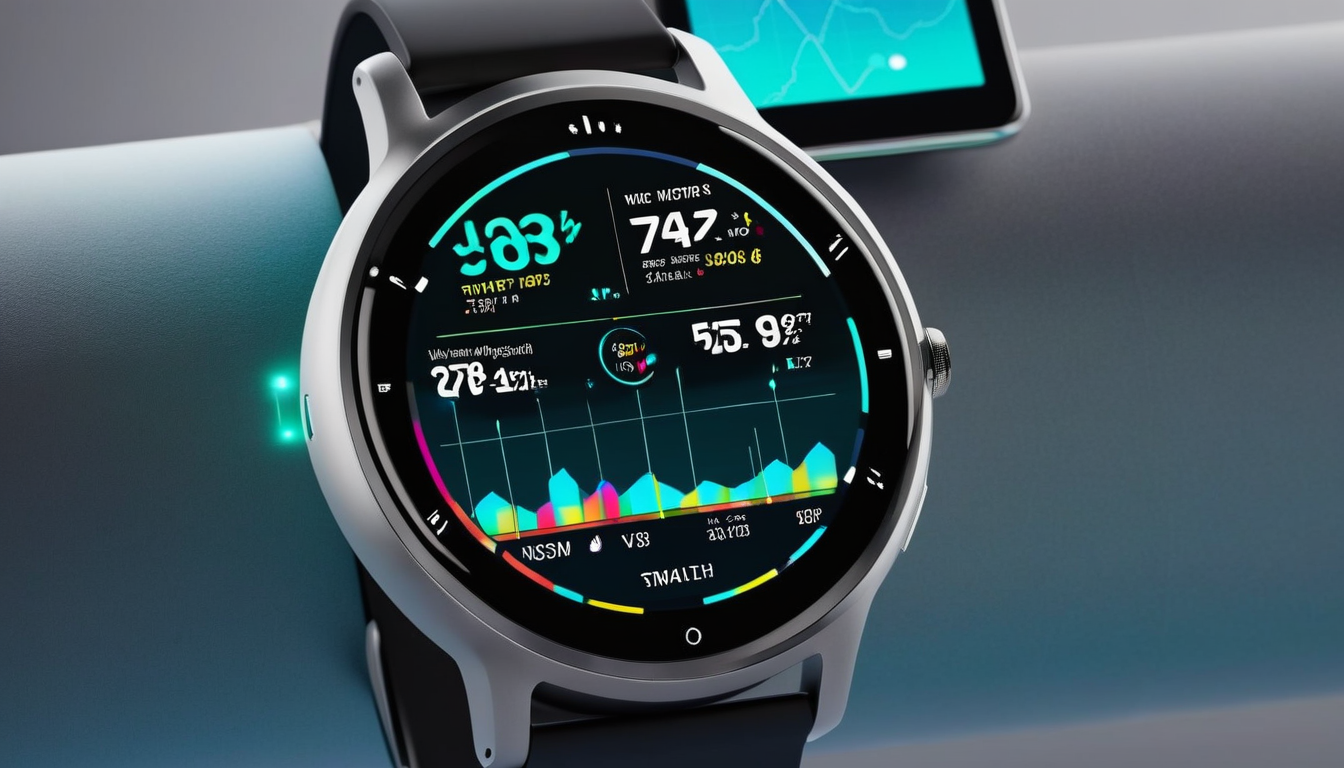
6. Remote Monitoring and Telemedicine
In today’s fast-paced world, remote monitoring and telemedicine are revolutionizing the way healthcare is delivered. Imagine being able to consult with your doctor from the comfort of your home, without the need for long waits in crowded waiting rooms. Thanks to advancements in artificial intelligence, this is becoming a reality. AI enhances remote patient monitoring by analyzing real-time data from wearable devices, such as heart rate monitors and glucose sensors. This not only allows healthcare providers to track patients’ health conditions more effectively but also enables timely interventions when necessary.
One of the most exciting aspects of remote monitoring is its ability to empower patients. With wearable technology, individuals can take charge of their health by continuously monitoring vital signs and receiving alerts about any abnormalities. This proactive approach can lead to better management of chronic conditions, reducing the risk of complications. But how does it work?
| Feature | Benefit |
|---|---|
| Real-time Data Analysis | Immediate insights into patient health |
| Remote Consultations | Convenience and accessibility for patients |
| Automated Alerts | Timely interventions for critical conditions |
Moreover, telemedicine platforms facilitate virtual consultations, allowing patients to connect with healthcare professionals through video calls or messaging. This innovation is particularly beneficial for those living in rural areas where access to medical facilities is limited. Patients no longer have to travel long distances for routine check-ups or minor ailments. Instead, they can receive quality care at their fingertips.
As we embrace this new era of healthcare, it’s essential to consider the implications of remote monitoring and telemedicine:
- Accessibility: Patients can access healthcare services regardless of their location.
- Cost-Effectiveness: Reduces the need for physical infrastructure and travel expenses.
- Enhanced Patient Engagement: Encourages patients to take an active role in their health management.
However, with these advancements come challenges. Data privacy and security are paramount, as sensitive health information is transmitted online. It’s crucial for healthcare providers to implement robust security measures to protect patient data and build trust in these technologies.
In conclusion, remote monitoring and telemedicine are not just trends; they are the future of healthcare. By leveraging AI, we can create a more accessible, efficient, and patient-centered healthcare system. As we move forward, the integration of these technologies will undoubtedly lead to improved patient outcomes and a healthier society.

7. Administrative Automation
In the fast-paced world of healthcare, administrative automation is becoming a game changer. Imagine a system where mundane tasks such as scheduling appointments, processing billing, and managing patient records are handled seamlessly by artificial intelligence. This not only reduces the workload for healthcare professionals but also minimizes the risk of human error. With AI stepping in, healthcare providers can focus more on what truly matters—patient care.
One of the most significant advantages of administrative automation is the efficiency it brings. Tasks that once took hours can now be completed in minutes, allowing healthcare facilities to serve more patients without compromising quality. For instance, AI can analyze patient data to send reminders for upcoming appointments, reducing no-show rates and optimizing the use of resources.
Furthermore, the integration of AI in administrative processes can lead to significant cost savings. A recent study indicated that healthcare organizations utilizing AI for administrative tasks could reduce operational costs by up to 30%. This is a substantial figure that can be redirected towards improving patient services and investing in advanced medical technologies.
| Task | Traditional Method | With AI Automation |
|---|---|---|
| Appointment Scheduling | Manual entry by staff | Automated reminders and bookings |
| Billing Processes | Paperwork and manual checks | Instant processing and verification |
| Data Management | Physical filing systems | Cloud-based, AI-driven databases |
However, it’s essential to approach administrative automation with caution. With any technological advancement, there are challenges to consider. For instance, the transition to automated systems requires training staff and ensuring that they are comfortable with new technologies. Additionally, data privacy must be a top priority, as sensitive patient information is involved.
In summary, the future of healthcare lies in embracing administrative automation. By leveraging AI to handle routine tasks, healthcare providers can enhance operational efficiency, reduce costs, and ultimately improve patient outcomes. As we move forward, the integration of AI will not only streamline processes but also allow healthcare professionals to devote their time to what they do best—caring for patients.
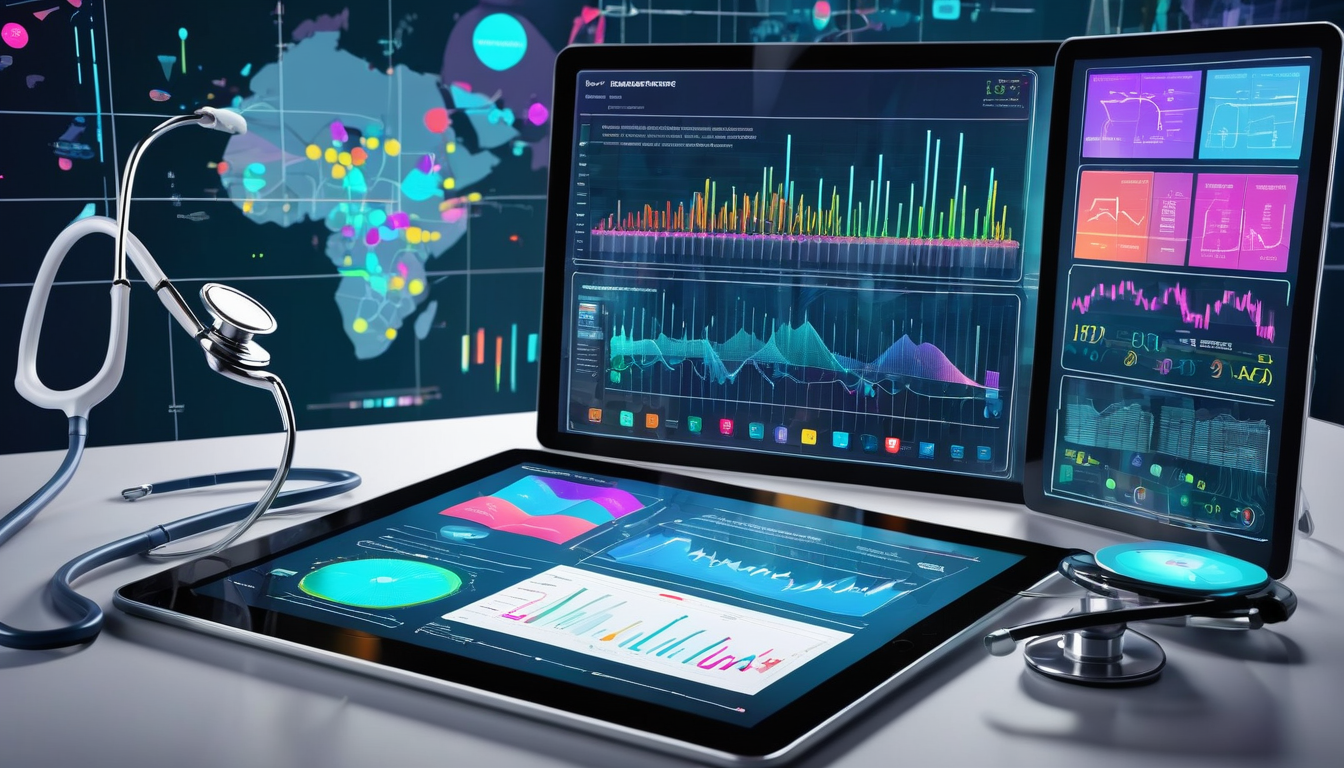
8. Enhanced Clinical Decision Support
In the fast-paced world of healthcare, making accurate and timely decisions is crucial. Enhanced clinical decision support systems powered by artificial intelligence (AI) are revolutionizing how healthcare professionals approach patient care. These systems analyze vast amounts of medical data, providing evidence-based recommendations that help clinicians make informed choices. Imagine having a highly knowledgeable assistant by your side, ready to offer insights at a moment’s notice—that’s what AI brings to the table!
One of the significant advantages of AI-driven clinical decision support systems is their ability to reduce the likelihood of errors. By integrating patient data, clinical guidelines, and research findings, these systems can highlight potential issues that a healthcare provider might overlook. For instance, they can alert doctors to possible drug interactions, suggest alternative treatments, or flag abnormal lab results. This not only enhances patient safety but also boosts the overall quality of care.
To illustrate the impact of enhanced clinical decision support, consider the following table that outlines key benefits:
| Benefit | Description |
|---|---|
| Improved Accuracy | AI systems analyze complex data, reducing diagnostic errors. |
| Time Efficiency | Quick access to relevant information allows for faster decision-making. |
| Personalized Recommendations | Tailors treatment options based on individual patient data. |
| Ongoing Learning | AI systems continuously learn from new data, improving over time. |
Moreover, enhanced clinical decision support systems can also assist in research and development. By analyzing trends and outcomes across large populations, these systems can identify which treatments are most effective for specific conditions. This insight not only aids individual patient care but also contributes to the broader medical community’s understanding of various diseases.
As with any technology, it’s essential to address potential challenges. Data privacy concerns and algorithm bias are significant issues that need careful consideration. Ensuring that AI systems are transparent and that healthcare professionals maintain oversight is vital for building trust in these tools. After all, while AI can provide valuable support, the human touch in healthcare remains irreplaceable.
In conclusion, enhanced clinical decision support powered by AI represents a significant advancement in healthcare. By improving accuracy, efficiency, and personalization, these systems empower healthcare professionals to deliver better patient outcomes. As we continue to embrace technology in medicine, the future looks bright for both patients and providers alike.

9. Mental Health Support
Mental health is a critical aspect of overall well-being, yet many individuals face barriers when seeking help. Fortunately, AI applications are stepping in to provide much-needed support. These technologies are designed to offer immediate assistance, making mental health care more accessible than ever. Imagine having a therapist available 24/7 at your fingertips—this is what AI-powered mental health support can achieve.
AI-driven tools, such as chatbots and virtual therapy platforms, are revolutionizing how we approach mental health. These applications can engage users in conversation, provide coping strategies, and even direct them to professional help when necessary. With the ability to analyze user interactions, these systems can adapt their responses, making the experience feel personal and tailored.
For instance, chatbots can help users track their moods and identify triggers. They can also offer resources and exercises to manage anxiety or depression. Here’s a quick look at some of the benefits of AI in mental health support:
| Benefit | Description |
|---|---|
| Accessibility | AI tools are available anytime, anywhere, breaking down barriers for those who may feel uncomfortable seeking help in person. |
| Personalization | These applications can tailor their responses based on user data, ensuring a more individualized experience. |
| Cost-Effectiveness | AI solutions often come at a lower cost than traditional therapy, making mental health care more affordable. |
| Immediate Support | Users can receive instant feedback and coping strategies, which can be crucial in moments of crisis. |
However, it’s essential to remember that while AI can provide valuable support, it should not replace human interaction entirely. Mental health professionals play a vital role in diagnosing and treating complex issues. AI tools can complement their efforts by managing routine inquiries and providing preliminary support.
As we embrace these technological advancements, ethical considerations must also be at the forefront. Issues such as data privacy and the potential for algorithmic bias need to be addressed to ensure that AI applications are used responsibly. Patients must trust that their data is secure and that these tools are designed to assist, not replace, human care.
In conclusion, the integration of AI in mental health support is a promising development that can enhance access to care and improve patient outcomes. As technology evolves, we can anticipate even more innovative solutions that will empower individuals to take charge of their mental health.
“AI is transforming the landscape of mental health support, offering hope and assistance to those in need.”

10. Population Health Management
Population health management is a revolutionary approach that leverages the power of artificial intelligence to enhance the health outcomes of entire communities. By analyzing vast amounts of data, AI can identify trends and patterns that would otherwise go unnoticed. This capability allows healthcare organizations to implement targeted interventions that can significantly improve the health of populations.
Imagine a world where healthcare providers can predict outbreaks of diseases before they occur or identify at-risk populations who may benefit from specific health programs. With AI, this is not just a dream—it’s becoming a reality. By utilizing various data sources, such as electronic health records, social determinants of health, and even environmental factors, AI can create a comprehensive picture of community health.
To illustrate the impact of AI in population health management, consider the following table that highlights key areas where AI can make a difference:
| AI Application | Impact |
|---|---|
| Data Analysis | Identifies health trends and risk factors in populations. |
| Predictive Modeling | Forecasts potential health crises, enabling proactive measures. |
| Resource Allocation | Optimizes the distribution of healthcare resources based on community needs. |
| Health Education | Delivers targeted health messages to specific demographics. |
Moreover, AI can enhance population health management through the following methods:
- Real-Time Data Monitoring: Continuous tracking of health metrics allows for timely interventions.
- Customized Health Programs: Tailoring programs to meet the unique needs of different population segments.
- Collaboration with Community Organizations: Partnering with local groups to address social determinants of health.
As we move forward, it’s crucial to consider ethical implications and ensure that AI tools are used responsibly. Issues like data privacy, algorithm bias, and the need for human oversight must be addressed to maintain trust in AI-driven solutions. In the end, the goal of population health management is not just to treat diseases but to foster healthier communities through informed decision-making backed by powerful data analytics.
In conclusion, the integration of AI into population health management is set to transform the healthcare landscape. By harnessing the potential of AI, we can create a more proactive and efficient healthcare system that prioritizes the well-being of entire communities, paving the way for a healthier future.
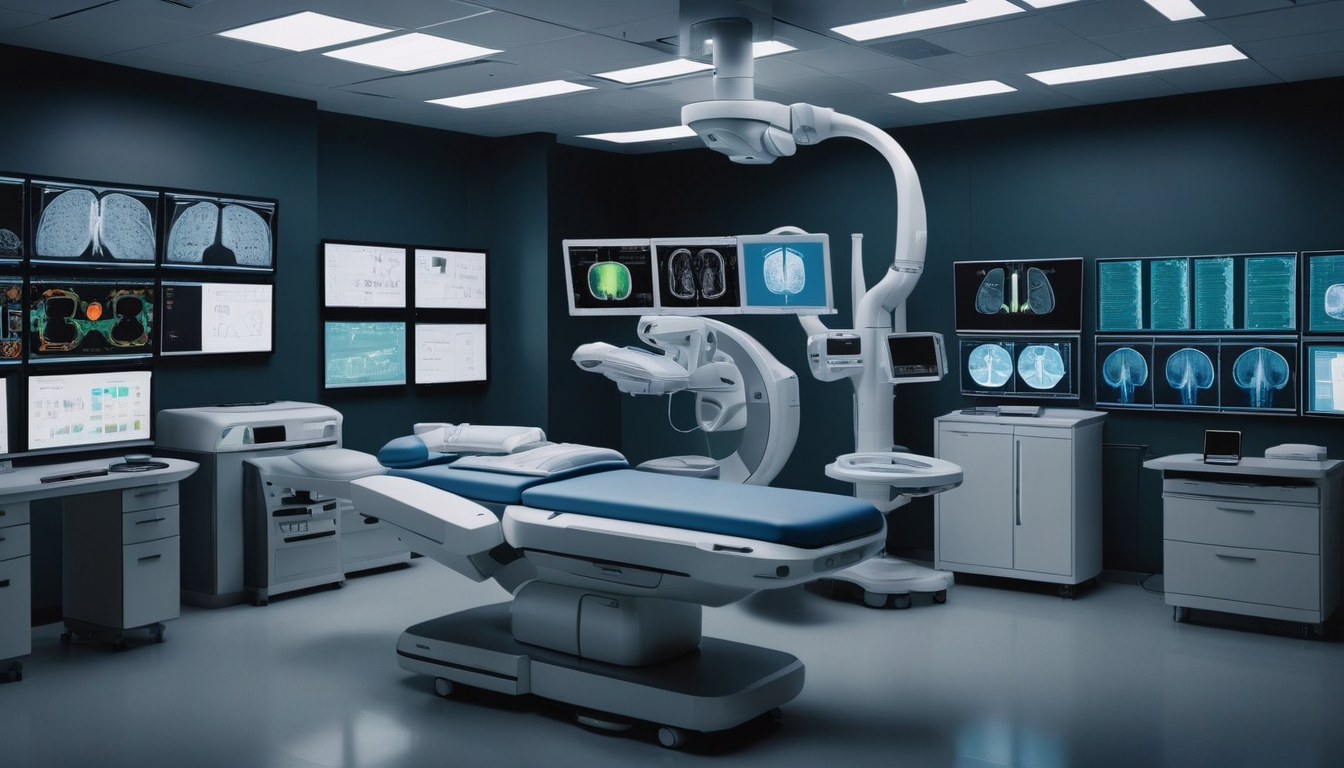
11. AI in Radiology
The integration of AI in radiology is revolutionizing the way medical imaging is interpreted and utilized in patient care. With the ability to analyze vast amounts of imaging data quickly and accurately, AI technologies are enhancing the diagnostic process, leading to improved patient outcomes. Imagine a world where a radiologist can receive instant feedback on their interpretations, significantly reducing the time it takes to diagnose conditions. This is not just a dream; it’s happening right now!
AI algorithms are designed to identify patterns and anomalies in medical images that might be missed by the human eye. For instance, in the case of detecting tumors, AI can analyze thousands of images in a fraction of the time it would take a human. This not only speeds up the diagnosis but also increases the accuracy, which is crucial in critical care situations. According to recent studies, AI can achieve accuracy rates comparable to or even exceeding those of experienced radiologists.
| AI Technology | Application in Radiology | Benefits |
|---|---|---|
| Deep Learning | Tumor detection in CT scans | Increased accuracy and reduced false positives |
| Natural Language Processing | Automating report generation | Faster report turnaround and reduced workload for radiologists |
| Image Reconstruction Algorithms | Enhancing image quality | Improved diagnostic capabilities with clearer images |
The benefits of implementing AI in radiology extend beyond just improved accuracy. They also include enhanced efficiency in workflow, allowing radiologists to focus on more complex cases that require human expertise. Some key advantages of AI in radiology are:
- Faster Diagnosis: AI can process images and provide insights in real-time, reducing wait times for patients.
- Improved Accuracy: With machine learning, AI systems continuously improve their diagnostic capabilities.
- Resource Optimization: Radiologists can allocate their time to cases that require human intervention, optimizing resources in healthcare settings.
However, as we embrace these advancements, it is crucial to address the ethical considerations surrounding the use of AI in healthcare. Issues such as data privacy, algorithm bias, and the need for human oversight remain paramount. Ensuring that AI tools are used responsibly will foster trust among patients and healthcare providers alike.
In conclusion, the future of AI in radiology holds immense promise. As these technologies continue to evolve, they will not only enhance diagnostic accuracy but also transform the entire healthcare landscape. By harnessing the power of AI, we are stepping into a new era of medical imaging that prioritizes patient care and outcomes.
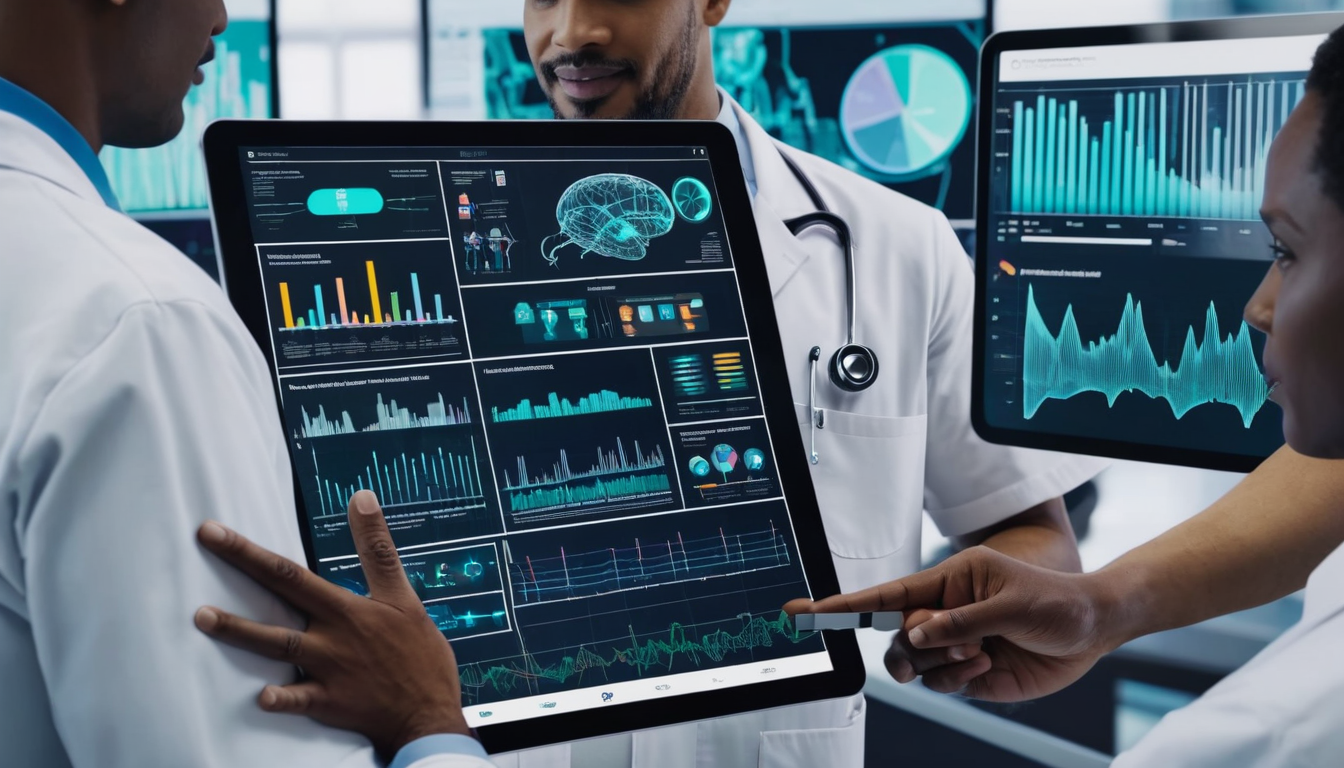
12. Ethical Considerations in AI Healthcare
As artificial intelligence (AI) continues to permeate the healthcare sector, the ethical considerations surrounding its use become increasingly critical. It’s not just about what AI can do; it’s also about how it does it and the implications of its actions. The integration of AI in healthcare raises several ethical questions that healthcare providers, technologists, and policymakers must address to ensure patient trust and safety.
One of the primary concerns is data privacy. With AI systems analyzing vast amounts of sensitive patient data, it’s imperative that healthcare organizations implement stringent measures to protect this information. Patients need to feel secure that their personal health information is not only safe but also used responsibly. The following points highlight the key ethical considerations:
- Algorithm Bias: AI systems can inadvertently perpetuate existing biases present in the data they are trained on. This can lead to unequal treatment outcomes across different demographics.
- Transparency: Patients and healthcare providers should understand how AI algorithms reach their conclusions. A lack of transparency can lead to distrust and skepticism regarding AI-driven decisions.
- Human Oversight: While AI can assist in decision-making, it is crucial that human professionals remain in control. The final decision should always involve human judgment to avoid potential errors.
To illustrate the importance of these ethical considerations, let’s take a look at the following table that summarizes the potential risks associated with AI in healthcare:
| Ethical Concern | Potential Risks |
|---|---|
| Data Privacy | Unauthorized access to sensitive patient information leading to identity theft or discrimination. |
| Algorithm Bias | Unequal treatment outcomes for marginalized groups, exacerbating health disparities. |
| Lack of Transparency | Patients may not trust AI-driven recommendations, leading to non-compliance with treatment plans. |
| Human Oversight | Over-reliance on AI could result in critical errors if human judgment is not applied. |
In conclusion, addressing these ethical considerations in AI healthcare is not just a regulatory obligation; it’s a necessity to maintain the integrity of the healthcare system. By fostering a culture of responsibility and transparency, we can harness the power of AI while safeguarding the interests of patients. As we move forward, it’s essential to engage in ongoing dialogue about these issues, ensuring that technology serves humanity’s best interests and enhances the quality of care.
As we reflect on the future of healthcare, let’s remember that the ultimate goal is to improve patient outcomes while respecting ethical standards. The conversation around AI in healthcare is just beginning, and it’s crucial that we approach it with caution and care.
Featured Image: For a WordPress blog post titled “Ethical Considerations in AI Healthcare,” consider a design that mirrors the style of the existing image “Who Makes Hart Tools.” Use a similar color scheme—perhaps blues and greens—to evoke a sense of trust and professionalism. Incorporate visual elements like a stethoscope intertwined with digital circuits to symbolize the fusion of healthcare and technology.
Frequently Asked Questions
- What are the main benefits of AI in healthcare?
AI in healthcare offers numerous benefits, including improved patient outcomes through predictive analytics, enhanced diagnostics with AI-powered tools, and streamlined operations via administrative automation. By harnessing the power of data, AI helps healthcare providers make informed decisions, ultimately leading to better patient care.
- How does predictive analytics improve patient care?
Predictive analytics utilizes AI algorithms to analyze patient data and identify potential health risks before they escalate. This proactive approach allows healthcare providers to intervene early, reducing hospital readmissions and improving overall patient outcomes. Think of it as having a crystal ball that helps doctors foresee health issues.
- Can AI really enhance diagnostics?
Absolutely! AI technologies are revolutionizing diagnostics by analyzing medical images and data with exceptional accuracy. This not only helps in identifying diseases earlier but also assists healthcare professionals in devising more effective treatment plans tailored to individual patients.
- What role do virtual health assistants play?
Virtual health assistants powered by AI provide personalized support to patients by answering medical queries, managing appointments, and offering health reminders. This not only enhances patient engagement but also streamlines healthcare processes, making it easier for patients to access the care they need.
- How does AI contribute to drug discovery?
AI accelerates the drug discovery process by analyzing vast datasets and predicting how different compounds will behave. This capability helps researchers identify promising candidates for further investigation, significantly reducing the time and costs associated with bringing new drugs to market.
- Is personalized medicine really possible with AI?
Yes! AI enables personalized medicine by analyzing genetic information and patient history, allowing healthcare providers to tailor treatments to individual patients. This leads to more effective therapies and better health outcomes, as treatments are customized to meet the unique needs of each patient.
- What is the impact of AI on mental health support?
AI applications in mental health, such as chatbots and virtual therapy, offer immediate assistance and resources to patients. This not only provides support but also alleviates the burden on mental health professionals, allowing them to focus on more complex cases.
- Are there ethical concerns with AI in healthcare?
Yes, as AI continues to evolve in healthcare, ethical considerations regarding data privacy, algorithm bias, and the role of human oversight are paramount. It’s essential to ensure responsible use of AI technologies to maintain patient trust and safeguard sensitive information.













